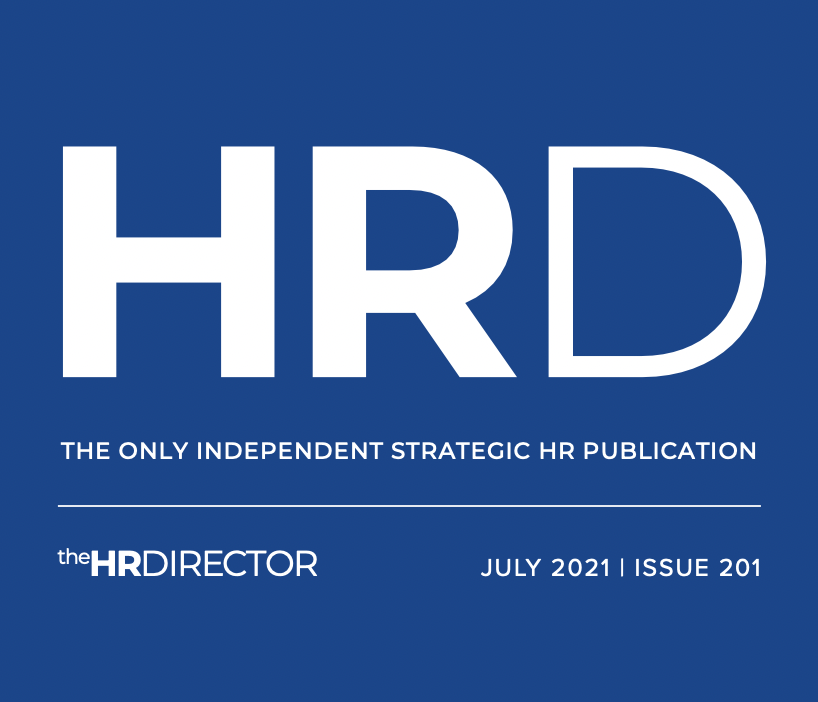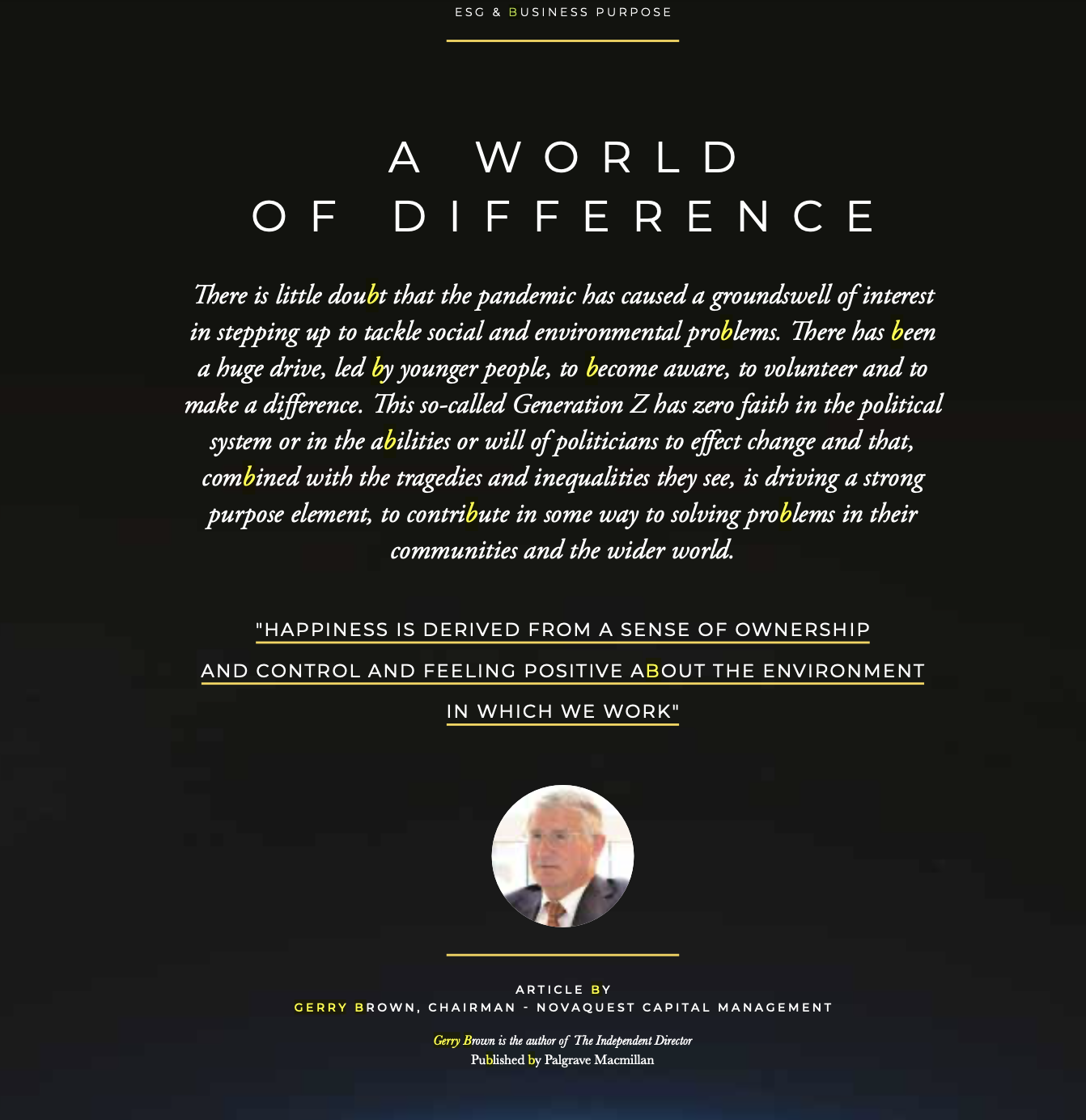
A World of Difference
HR Director magazine (July 2021; Issue 201) kindly invited me to contribute my thoughts on how to do environmental, social and corporate governance (ESG) initiatives better and more purposefully.
For copyright reasons, I can’t post the whole article (but you can read it in full by subscribing – by the issue or annually and either in print or digitally - to this thought-provoking monthly magazine here) but wanted to share a few thoughts and summarise some key points of the article.

If nothing else, the pandemic is also an opportunity to change the direction, trajectory and understanding of environmental, social and corporate governance (ESG) initiatives for the businesses, charities and health and social groups that serve our communities in the post–Covid-19 age. It is also a good way -f or want of a better term - help provide “purpose”. Now more than ever, organisations are relying on talented and informed volunteers to ensure their campaigns reach the wider world and serve the communities that are so in need of assistance. Over and above the recent surge in Covid-19 volunteers, there have already been ample signs of a groundswell of interest in stepping up to tackle social and environmental problems. There has been a huge drive particularly by millennials to volunteer and make a difference.
Pride and purpose are powerful motivators. The feeling that what you do is worthwhile drives exceptional service, continued innovation and commitment. Volunteering and bringing the community back to the core of what we are about is what sustains us. In the pre-pandemic days, 17% of the population went out of their way to ‘put something back’ every year. If you were to put a monetary value on the total number of hours volunteered, it would be £22 billion, according to the ONS.
My personal interest is in volunteering as an independent director (non-executive director in old money) but the ways we choose to express our purpose is endless. They could all well open up an entirely new career path. It’s a chance to try out a new career without making the long-term commitment. Join an organisation that does the type of work you’re interested in and ‘road test’ it as a suitable new direction.
Companies all over the globe are looking closely at the impact they have on society and are putting ethical policies in place to support individuals, the local community and the environment. Indeed, one study found 64% of millennials won’t accept a job at a company that doesn’t have strong purpose and social responsibility practices.
When it comes to keeping people engaged – and therefore ensuring they stick around for the long haul – there needs to be evidence that the employer is ready to give back.
If none of these arguments are enough to sway an employer of the advantages of engaging their team through initiatives allowing them to volunteer, there two more very powerful arguments. The first is to do with the factor that drives any commercial organisation: profit. ESG initiatives have been revealed to have a markedly positive impact on the bottom line. Research shows that companies with a fully engaged workforce outperform their peers by 147% in earnings per share. (Extrapolate that further for a moment: if the productivity of the UK workforce went up by just 1%, the economy would benefit by approximately £17 billion). Engaged employees are also more likely to perform better, take 3.5 fewer sick days a year, and stick around longer than their disengaged colleagues. Since being allowed to volunteer is central to engagement, this means there are not many forward thinking employers that would dismiss out-of-hand a request to volunteer.
The second reason is to do with the rules and obligations impacting large- and medium-sized organisations. While it is not a legal requirement for companies to undertake many of their ESG activities, there are
other rules in place that mean companies are expected to report on a range of social, environmental and ethical issues. This has opened the door to a greater support for voluntary activities. Under the Companies Act 2006, one of the duties of all directors is to promote the success of their company for the benefit of its team. This means corporate social responsibility (CSR) issues should feature in the boardroom on a regular basis. Among the many areas of discussion, which include frequent scrutiny that the needs of employees are being met, is also to explore the impact of the company’s operations on the community and the environment.
The Companies, Partnerships and Groups (Accounts and Non-Financial Reporting) Regulations 2016 says that quoted companies and financial institutions in particular must include information in their strategic reports describing their approach to environmental matters, employees and social, community and human rights issues. This report must also include information about any policies of the business in this respect and also the success and effectiveness of its policies. The clear evidence of the merits of employee engagement and the rules governing greater ESG awareness have all greatly strengthened the cause of ESG.
The (and my) simple message is: If businesses focus on their employees’ wellbeing and happiness, they will do better and society will be better off too. Happiness is derived from a sense of ownership and control and feeling positive about the environment in which you work.
